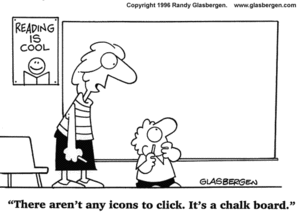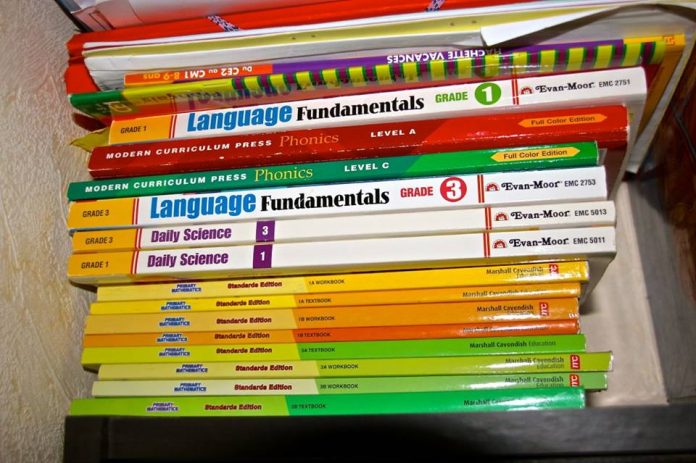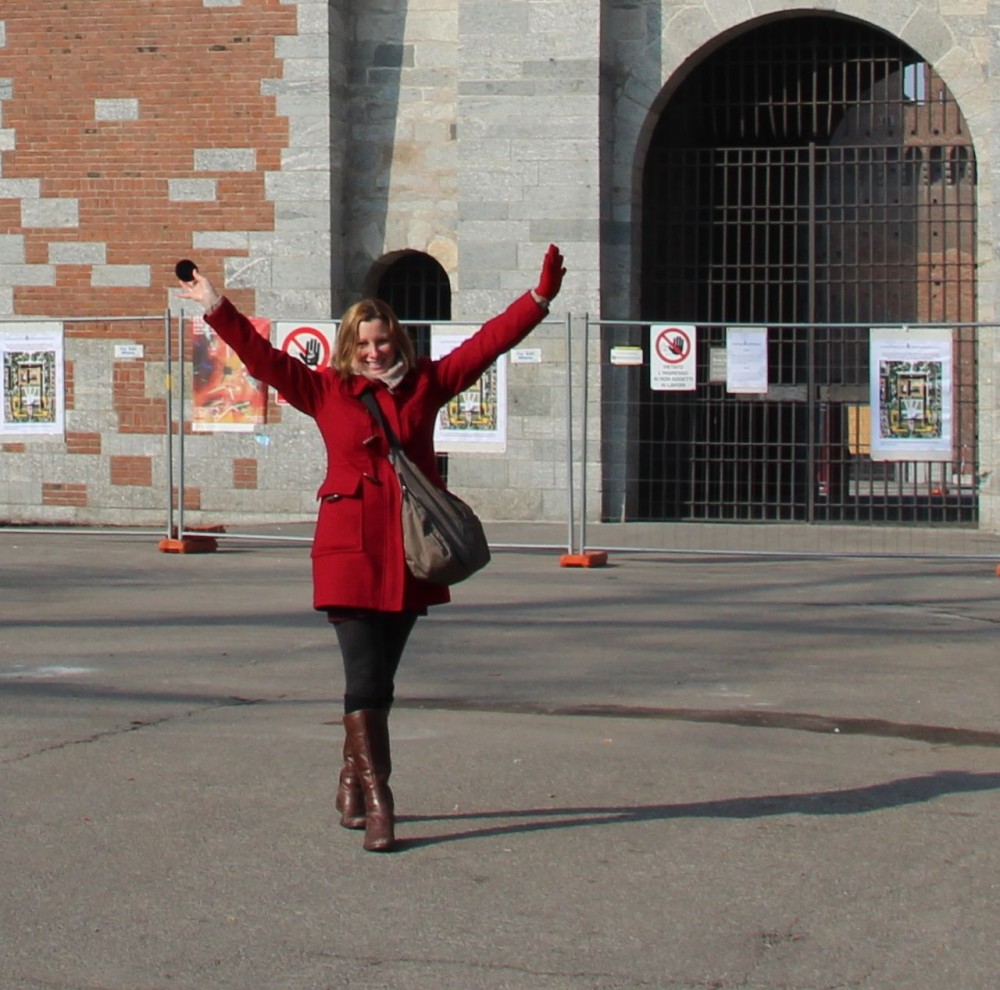Some teachers taught the curriculum today. Other teachers taught students today. And there’s a big difference.
I didn’t go to school to become a teacher. Nope! I was scouted out in high school for a business management training program to work in a large retail grocery chain in British Columbia, CANADA where I grew up. A union job that paid exceptionally well gave free university business management training courses and an opportunity to get out of the not so desirable neighbourhood I grew up in.
For many of us who survived the economic downfall of our parents in the eighties, and for the daughter of immigrant parents, I was lucky to have sustainable income. It was the answer to support myself straight out of high school, especially without the support of my parents to put me through traditional university.
Teaching was a natural progression after years of managing people.
For twenty years I trained and scheduled hundreds of people per week, balancing inventory, updated computer systems and kept things running smoothly. I dealt with customer complaints and learned to oversee the workings of different departments.
It seems because of these skills; working in large groups, collaboration with different personalities, customer service, and making timetables work with lifestyle and family; it put me in an interesting position when teaching Generation Z, those who are 7-21 years of age right now. An edge that helped me understand how my own kids function as they grow up with technology at their fingertips.
I recognized quickly what they need in the classroom setting, something that they were not always getting in traditional schools.
Here’s the idea!
Imagine a classroom where the teacher is not teaching but guiding or mentoring. Imagine students leading the lessons. Imagine parents helping out. Imagine project based learning where the subjects are intermingled. Imagine Internet and technology being part of the everyday classroom. Imagine what the future of learning might look like if we keep on this track.
Who is Generation Z?
Children born between 1996-2010 are classified as Generation Z. They are mostly comprised of the offspring of Generation X.
What does Generation Z need from teachers?
They need a balance between the current school system, and real time learning through experiences equilibrated by me, the parent. I would love a flexible school that warrants travel as education, that sees the value in sailing trips with dad even if it clashes with homework timetables and activities. Imagine going in for testing and projects but little else. Imagine homeschool and roadschooling tied into curriculum. Imagine the future with many possibilities for our children.
Personally I would love my own children to be at home more. Parents often see school as a babysitting service while they go to work, but often I don’t understand the point of them going to school. After all I take them to the zoo and they learn about the animals. I take them to the market and they learn how to manage money. We cook together and they learn culinary skills. We travel together to the places they read about in books; they learn culture, history and languages. These everyday experiences build the child’s foundation.
In school they are often there just to pick up a lesson given and not taught or explained by the teacher. Once home, it is my job to explain the concepts and how it ties into their lives. They often learn more outside of the classroom than inside.
In the future classroom teachers will need to be more open to giving a student a grade for something like journalling an event during family time. If he misses a math class but visits the Olympics for instance, as teachers we cannot demand the student be in class. Teachers must seize the opportunity as a learning experience for the entire class. Perhaps a Skype call from the event or once home presenting to the class using PowerPoint or Prezi presentation platform can make the most of our children’s experiences.
I dream of classrooms full of technology, where skills are learned that will actually be utilized by the student in their future.
Currently we are teaching children Reading, Writing and Arithmetic. Perhaps because the future is unclear we should be teaching children how to find the answers to questions that might arise in their lifetimes; like world peace, furthering technology, saving the planet, new forms of clean power; after all it is this generation that will be in charge of saving mankind and our planet from the destruction that the past few generations have done. (Sorry, we were too focussed on making money; Generation Z is getting the cleanup bill.)
Classrooms filled with interesting topics that hold their attention, which stimulates project based learning, that ignites and fans the fire within them to learn. I foresee an amazing future that teachers must facilitate and nourish. We cannot think that school was good enough for us so it must be good enough for them. We need to change the teaching paradigm.
What I see is teachers teaching curriculum…
Teachers are pushing the same dry, boring and outdated information as when I was a kid. But here’s the thing. Kids are different.
What was taught in schools 60 years ago is still being taught in schools across the world today. If now is not the time for change then when? Isn’t it time for teachers to start teaching students, and not curriculum.
Today’s generation prefer visual and interactive lesson plans. They grow up using the internet, instant connections to friends on media, and information at their fingertips whenever a question arises.
They need lesson plans who deliver game design and game theory into education with continuous grading and feedback, clear goals, rewards, and challenges. They must be taught to discover, curate, and manage the information online. To weed through the fat to find the answers and a teacher willing to go where no teacher has gone before. In the knowledge era, these will be key factors. This generation is about collaboration and relationship.
A teacher who wants to keep the centennials or Generation Z born mid-nineties – 2010 engaged in the classroom, must find alternative teaching methods. The millennials or generation Y born 1976-1996 were already showing signs of complete boredom in the classroom from simply watching TV. But this next generation demand new methods as their brains are actually wired different from thousands of online hours.
They seek choices, freedoms and knowledge. They want to express themselves in whatever form they choose.
You may say I am asking you to entertain my children in class. In some ways yes. Just like my own classes that I teach, they demand 100% of my attention to keep them engaged, and I try different methods until I get through to my class, and when that doesn’t work anymore, I try again. Why? Because that is my job as their teacher, to teach the students, not the curriculum. And these students demand it. I am willing to do whatever it takes for them to learn in my classes.

“The good teacher communicates a deep regard for students’ lives, a regard infused with unblinking attention, respect, even awe. An engaged teacher begins with the belief that each student is unique, each the one and only who will ever trod the earth, each worthy of a certain reverence. Regard extends, importantly, to an insistence that students have access to the tools with which to negotiate and transform the world. Love for students just as they are—without any drive or advance toward a future—is false love, enervating and disabling.” (Ayres, Klonsky, & Lyon, 2000, pp. 2–3).
Constructivism asks why students do not learn deeply by listening to a teacher, or reading from a textbook. To design effective teaching environments, it believes one needs a good understanding of what children already know when they come into the classroom. The curriculum should be designed in a way that builds on the pupil’s background knowledge and is allowed to develop with them. Begin with complex problems and teach basic skills while solving these problems.
This generation already knows how to navigate the internet, set up programs, iPhones, computers and iPads, download apps, basic web design, technology revolving around TV & DVD players, streaming, social media… for us to understand what these kids need, we need to understand what they already know. Teachers need to get up to date in these fields, otherwise the student arrives to the classroom far smarter than their teacher, and guess what, they know it! And they will let you know that they know it.

Some teaching solutions!
Response devices, images that spark discussion, competitions that tie in their competitive nature and track their progress for them to see and let them learn by making mistakes.
Utilizing multimedia rooms. I had the honour for working with a new teacher this year fresh out of university. I noticed that at 25, using technology was second nature to her and I stuck by her side to learn as much as I could! She loved the techie language room as much as I did, and gave innovative and interesting lessons using technology! We learned together, tried different lesson plans and kept it interesting for our first year as teachers.
The room is set up like this. There are 14 computers all facing the smart board, and a master computer that connects to a larger smart TV on the opposite side of a giant glass window with another 25 chairs facing the screen. The third work area is a TV with a grouping of comfortable leather chairs meant for discussions and group projects. A teacher can run an elaborate project utilizing all three spaces and having the students rotate along.
If such classrooms were the norm, then advancement with curriculum would be easy. Listening comprehension in one part, interactive screen work instructed with the teacher in another, and the third would be a quiet area for discussions and group projects. Add in your own devices and voila, success.
Why does Project Based Learning (PBL) work?
First and foremost the Project Based Learning method breaks down the isolation wall of the classroom reaching beyond to experts in every field. No longer are we only looking toward the teacher for the answers. The student is now responsible for his or her own learning, which produces a lifelong learner.
Schools where PBL is practiced find a decline in absenteeism, an increase in cooperative learning skills, and improvement in student achievement. These benefits are enhanced when technology is used to promote critical thinking and communication.
21st century skills include
- personal and social responsibility
- problem solving
- teamwork
- research gathering
- time management
- information synthesizing
- utilizing high tech tools
- planning, critical thinking, reasoning, and creativity
- strong communication skills, both for interpersonal and presentation needs
- cross-cultural understanding
- visualizing and decision making
- knowing how and when to use technology and choosing the most appropriate tool for the task
Changing the teaching paradigm.
Traditionally students are grouped by age, methodically processed through the school system, and in the end everyone is ‘educated’. The system is perfect for the average child with normal abilities. However an advanced or challenged student falls to the side line of this teaching method, and unfortunately individual talents and skills are largely overlooked.
These groups sit in a classroom to keep distractions out, and the lessons administered by a teacher in a downward manor, and the learning done by administering homework. Then through memory and rote, they are tested, and the information is eliminated or discarded after when the student tests out. And then hit repeat to start the process again.
Today’s children expect more. They are a multi-modal generation that demand multi learning channels. So a traditional classroom could only be part of the curriculum itself. Perhaps the future classroom will have internet access and computers for each child, iPhones and iPads with different programs to enhance the lesson plans. But the child would research at home on a specific topic, and bring their information to class for discussion. The application of content is still the teacher’s responsibility. Yet the majority of the learning would not take place in the classroom, but wherever the child can access the internet.
I will have opponents on this topic, especially believers in the traditional school system. Having two children of my own born 2003 & 2005, I can tell you that they have been smarter than me since they were about 7 years old. Ok perhaps not decision making skills, but the information they gathered strictly by osmosis by grade one is more than a university education person from my grandfather’s generation. I wish I were kidding.
I also read that this generation has the highest IQ’s ever recorded! They process vast amounts of information. Their minds compartmentalize and sort through, and somehow they eventually know their place in this world far sooner than generations before. The most astonishing part is their sense of belonging to a community of peers, and their harmony with nature and their desire to preserve it. They have an innate craving to live in symbiotic balance with their world. They also have a strong sense of justice. If anyone will change the world, it will be these young minds.
I found this very interesting…
This past year with my grade nine English second language students I decided to read the novel ‘Lord of the Flies’ by William Golding. It was written in 1954 and the language is full of old slang, and funny language references from my grandfather’s generation. I love the story about a group of boys between 8-12 years of age stranded on a desert island and what would really happen to them faced with their own innate nature and basic animal instincts.
Although most of my pupils are honour students, I would bet 90% of them did not read the novel but the Cole’s notes or the chapter summaries off the net. Not because they can’t read but because to slow their brains down long enough to go through thousands of words of text, is simple a waste of time for Generation Z. They are used to visual information, mach speed images being flashed in front of their faces, and in class we slow it down to a fatal crawl. I say fatal because just the exhaustion of it extinguishes their natural desire to learn.
In class reading out-loud was a short term solution, giving each student their own chapters and questions or listening to the novel being read and then explained and discussed. Some even started skipping school, or getting stomach aches before class. It was pure torture.
I bet you are thinking that Generation Z must be illiterate. It couldn’t be farther from the truth. They are texting and communicating thousands of times per day, but we (older folks) think that because it is what we consider a dumbed down version of the English language that it has no merit. I cannot disagree more. I believe the opposite. Language is living, breathing, and changing. This generation is changing and evolving the language in many different ways; with new vocabulary and innovative ideas that stem from their social circles through technology and modern things going on online.
Generation Z’s pack mentality is a positive.
They naturally help and connect to each other in the classroom, helping the weak, pushing the strong, sticking up for the students with the bad marks, banning together to protect each other and as a group they are creating an interesting paradigm. Kind of like soldiers in war, no one gets left behind. It is remarkable and I cannot think of another generation that like worker bees are so connected, or ants, pulling and protecting each other.
They are a smart generation indeed, dividing homework and sharing their answers moments before class. Connecting via Skype or FaceTime during homework time no question goes unanswered. This generation is multifaceted and extremely productive, but not just with homework. They connect through video games, media to organizing parties, flash-mobs, and going to the movies. They are networking in their hyper bubble of civilization in my class. And when they grow up they will expand into the world connecting on a personal level.
What the future holds if this carries on into their adult lives would be a collective who knows which technology to use when and where, with a strong community base online and off.
The teacher’s role is changing. Where once the teacher was the only one speaking, and the students listening; now questions and collaboration is going on throughout the class. With this comes an unknown factor for the teacher. If a project fizzles out, the answer to the question is never obtained; however their is a chance that the teacher’s lesson takes the entire class on an adventure, which leaves the teacher with less power. The power or better, the objectives and the lead, is taken by the student.
The natural progression of the classroom will be no subjects. I imagine a world where we ask a question, and the students work in different groups to find the answer over the course of the entire year.
Like for instance, How to build a building. The children would first make groups and pick leaders of each group. Then they brainstorm the basic ideas. They would have to understand land values, cost effective solutions, materials, construction costs and the list goes on and on. Make it environmentally efficient and now you can carry all the traditional subjects into the project. Art; drawing the first sketches, math; diagrams and measurements, sciences; how to dig a hole and not have it fill full of water, and what materials are needed to build what… etc
Experts would enter the classroom to teach the necessities. Utilizing Skype and Youtube videos until all the research is done.
The teacher would scaffold the lessons; ask questions without giving answers, to continue their search for solutions to every problem that arises. The groups would then visit building sites, field trips, information seminars…
One problem with traditional learning is that is doesn’t recognise individual talents, or different types of intelligence; academic learning takes the lead and creative or artistic talents are viewed as less than adequate or weaker.
In the new classroom everyone can showcase their strengths and weaknesses and build on their own personal interests. The children will lead the learning process giving the teacher many opportunities to evaluate personal skills.
The future classroom has Generation Z in mind.










